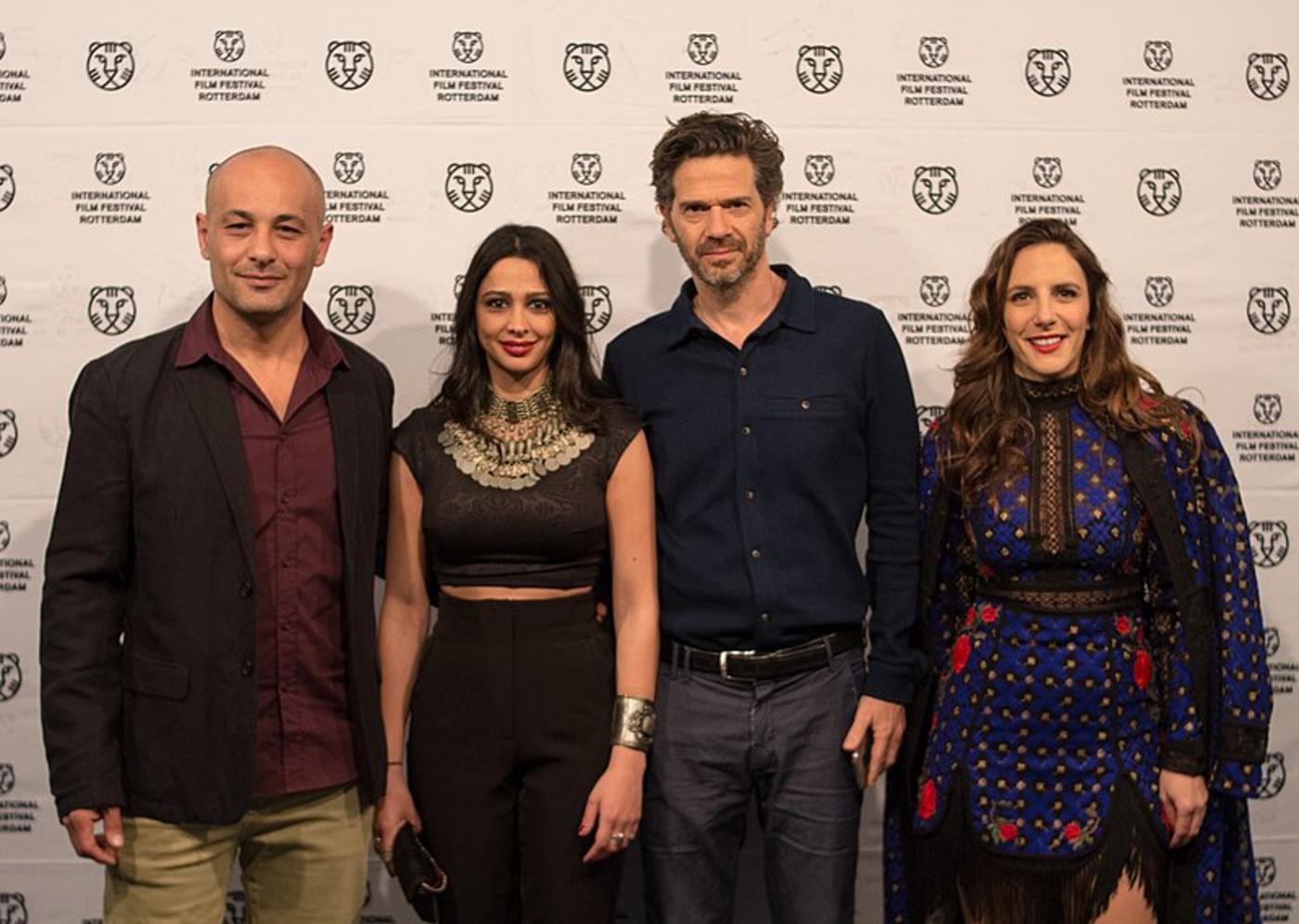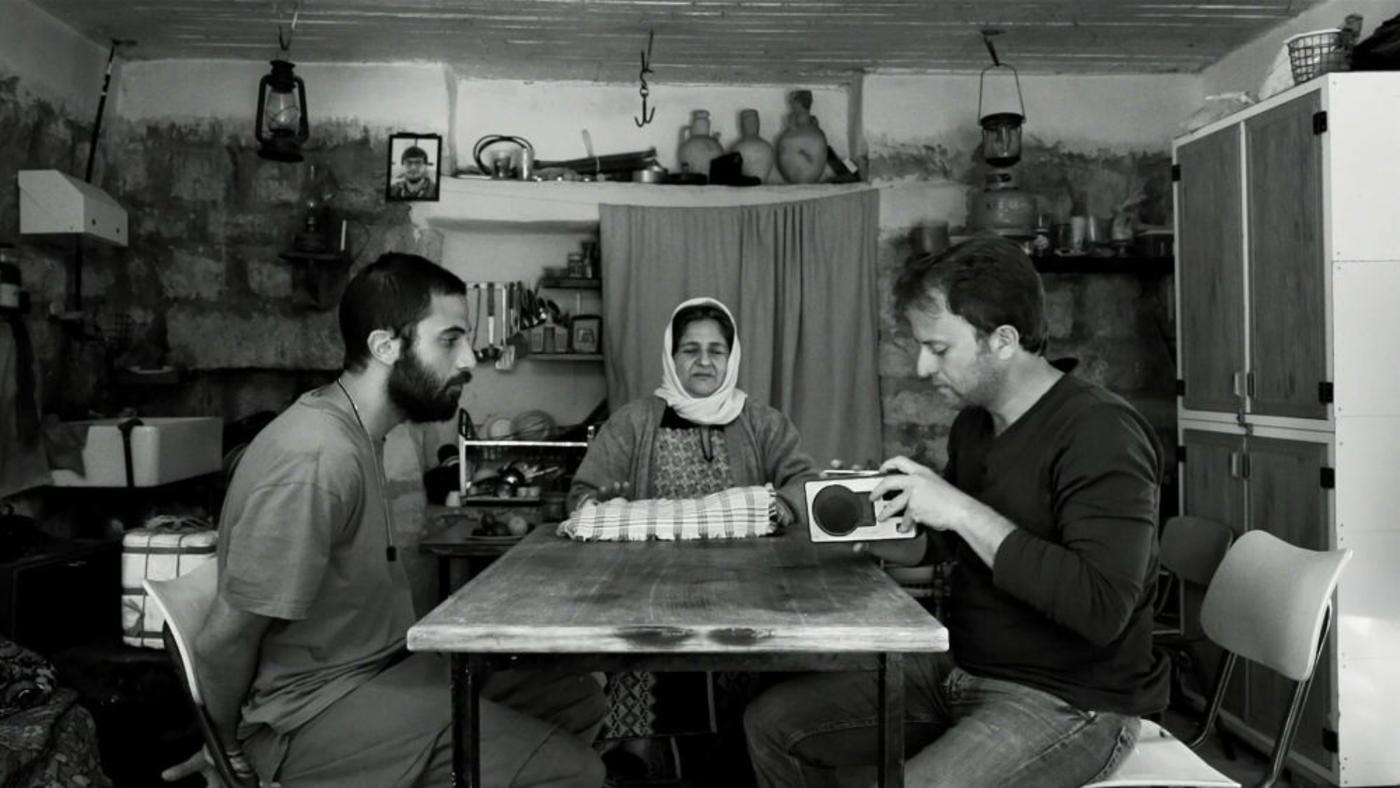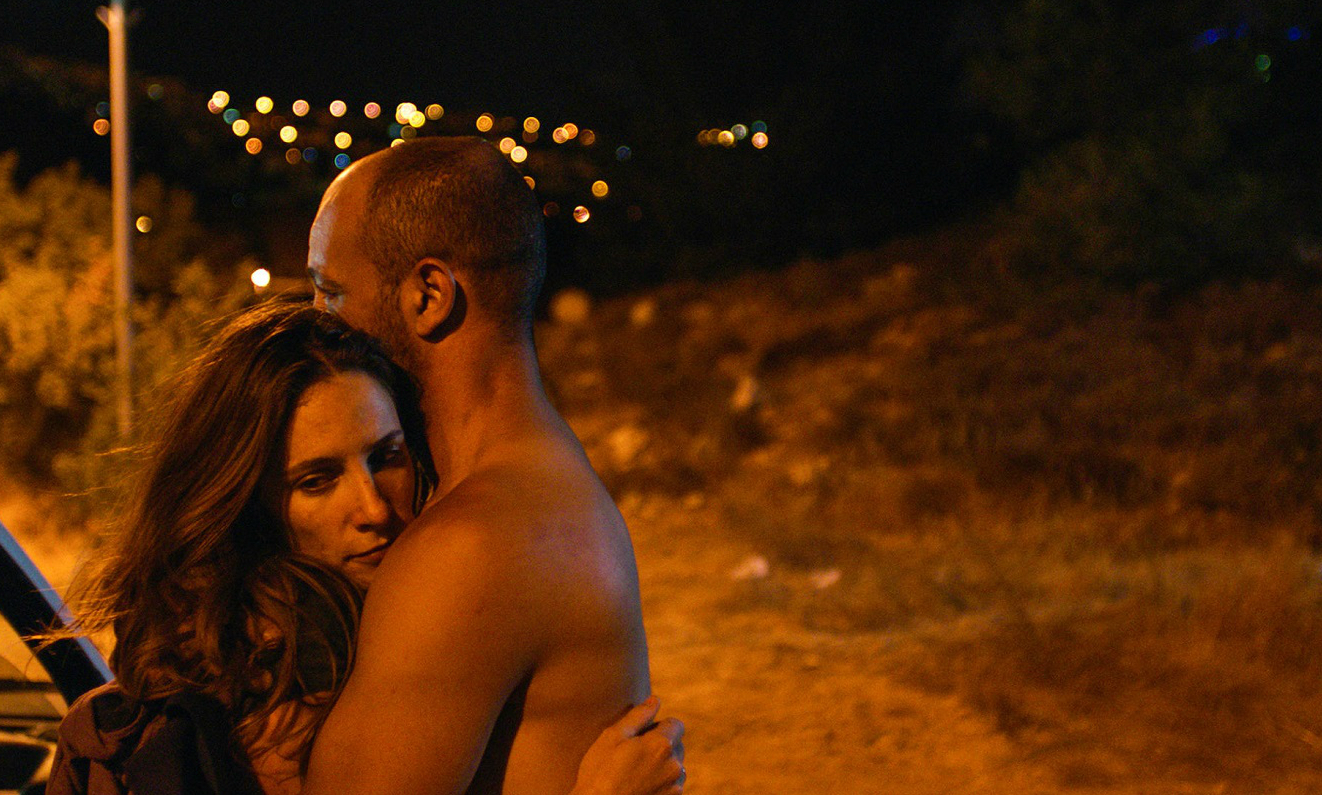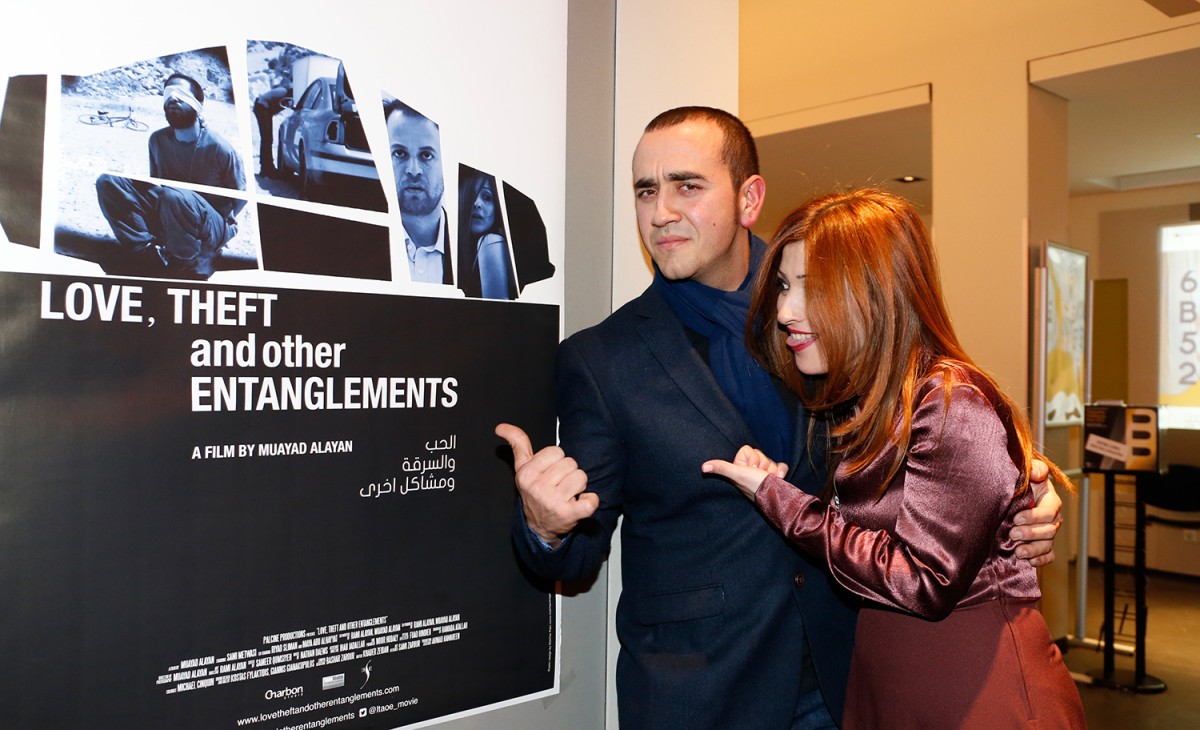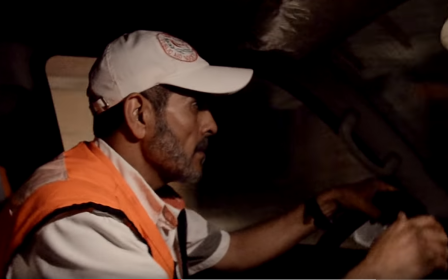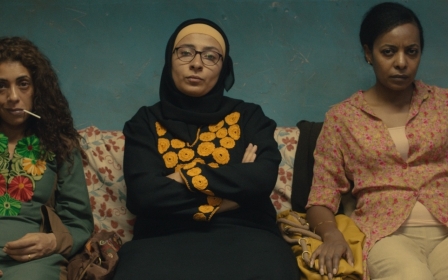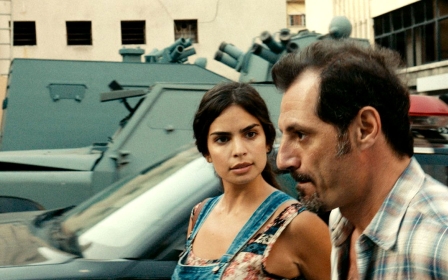Sex, lies and Jerusalem: The unforgiving films of director Muayad Alayan
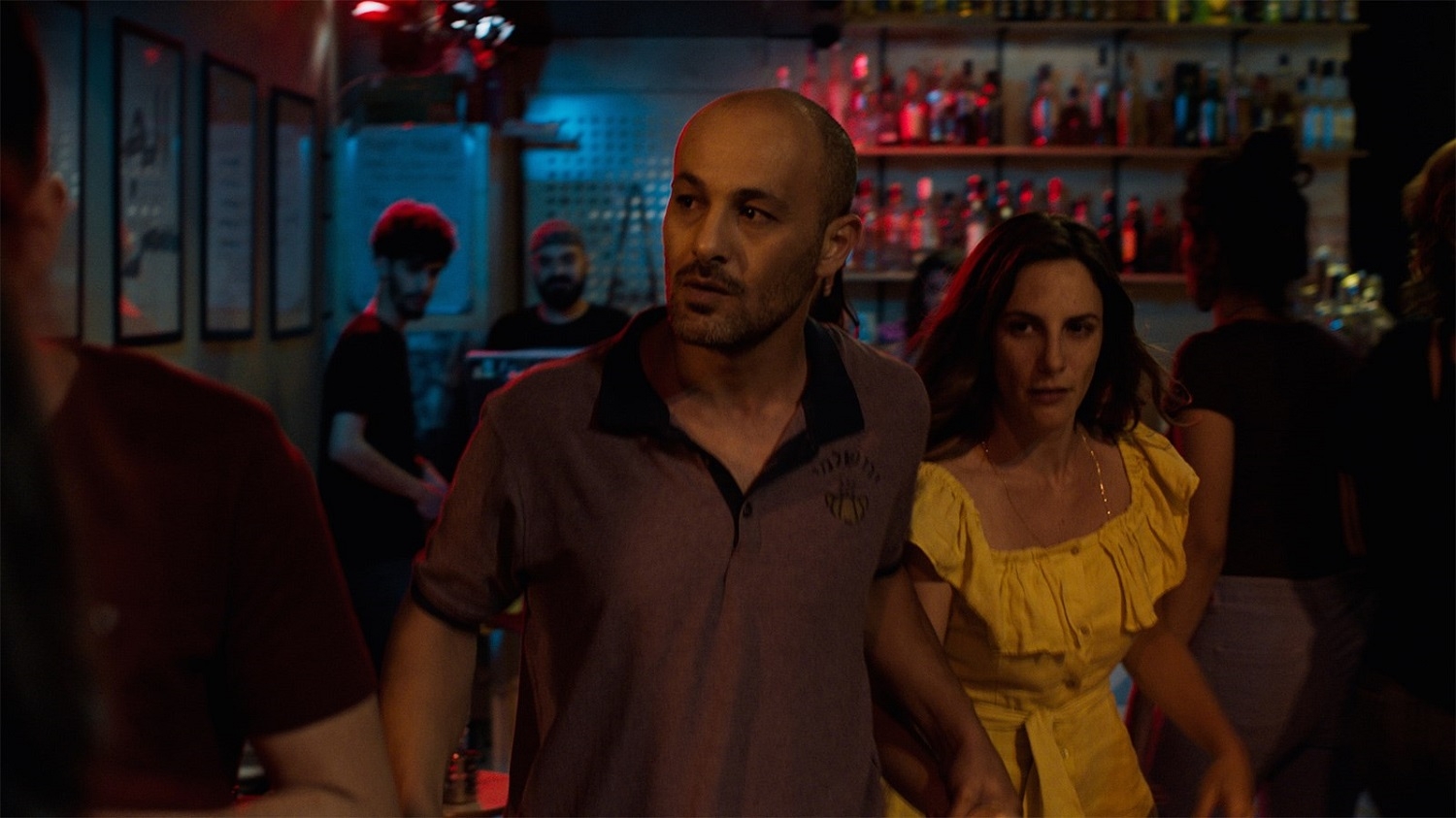
It starts with a sudden and violent arrest. A Palestinian thirtysomething man is brutally thrown into an interrogation cell. Initially confused and shell-shocked, signs of apprehension and remorse creep through his face when the officer asks him when, and how, he recruited a woman named Sarah.
A flashback then introduces us to the four principal characters: Sarah (Sivane Kretchner), a cafe owner living in the western Israeli part of Jerusalem, is agitated at being forced, again, to close down and relocate with her Israeli army colonel husband David (Ishai Golan).
Saleem (Adeeb Safadi) is a truck driver living in Arab East Jerusalem, delivering baked goods to businesses like Sarah’s on the western side. He is married to Bisan (Maisa Abd Elhadi), a young veiled woman from a middle-class family which partially supports them.
Bisan’s pregnancy adds more economic pressure on Saleem. The calm life he enjoys with his conservative wife is nowhere as exciting as the sex he has in the back of his truck with the attractive Sarah. Both are undeniably attracted to each other, but the affair is strictly sexual, even when both on occasion try to make it feel a little more than it actually is.
New MEE newsletter: Jerusalem Dispatch
Sign up to get the latest insights and analysis on Israel-Palestine, alongside Turkey Unpacked and other MEE newsletters
Eventually, their trivial sexual dalliance swiftly spirals out of control, as Saleem is later arrested in Israel for alleged espionage, and becomes a full-blown political standoff between Israel and Palestine.
What unfolds in The Reports on Sarah and Saleem is a thoroughly engrossing hybrid of political thriller and relationship drama with not one sympathetic character. This world is far from the Palestine we know: grittier, more unforgiving and all the more real for it.
It is the world of director Muayad Alayan, the hugely talented young Palestinian who during the short course of his career has presented a daringly honest portrait of Palestinian life in Israel.
“If you truly want to change your life in this place, you need to be more critical of your reality,” he tells MEE. “You need to show the good, the bad and the ugly."
Story of a generation
Born in 1985, Alayan, who is based in Jerusalem, studied film in San Francisco before returning to his hometown to direct his debut narrative feature, Love, Theft and Other Entanglements, which premiered at the Berlin Film Festival in 2015.
Populated with clueless bubbleheads, this black comedy centres on a young Palestinian hoodlum who steals a car only to find a kidnapped Israeli soldier in the back of the trunk.
Shot in black and white and abundant with ostentatiously cool visuals harkening back to the French New Wave, Love, Theft and Other Entanglements was a bolt of lightning, arriving as Palestinian cinema was struggling with self-definition; an absurd, Brechtian indie that was unafraid to explore Palestinian reality in an unflattering light.
A blindly patriotic treatment of the situation at hand not only feels unfitting but dishonest at a time when the debilitating standstill between Israel and Palestine has become the status quo; when Palestinians continue to be stuck with the same destitute options of Hamas and Fatah; when corruption has become rampant; and when the Israeli right negates the Palestinian existence.
“My stories are influenced by what’s happening around me,” he tells MEE. “I don’t make films about what should be said or should be done. My stories are reflections of an entire generation of Palestinians; a generation that has experienced a lot of disappointments. Our cynicism was a way of life, our mean to survive.”
Alayan is conscious of how his work stands in contrast to the narratives of past Palestinian films
There are no heroes in Alayan’s world, no empty slogans or false hopes regarding the future of the resistance. His films are driven by a knack for analysis rather than a need to rouse or inspire. And although his films have no clear-cut villains, the Israeli state constantly emerges as the invisible antagonist whose racist policies are directly responsible for the Palestinian decadence.
He is conscious of how his work stands in contrast to the homogenous resistance narratives of past Palestinian films. The early works of the first generation of Palestinian directors during the early 1980s, he says, were “a reaction towards how the Palestinian narrative was obscured from the rest of the world”.
This was necessary at the time, Alayan asserts. Palestinian directors needed to get their story out there, to counter the dominant Israeli narrative and get recognition for Palestinian cinema.
“My generation, however, was affected by different experiences,” he says. “We knew that our lives are not going to change if we simply get our stories out there. We realised early on that we needed to look more critically at what’s happening”
Double standards, double lives
The hostile critical reception that met Alayan’s films on some Arab circuits is no different from that which greeted the first films of veteran directors Michel Khleifi and Elia Suleiman (both from Nazareth) – a reaction now largely forgotten thanks to the subsequent international acclaim both have earned.
“These guys were telling stories about a specific generation belonging to a specific community that nobody was talking about,” Alayan says. “The close proximity we have with the Israelis, our casual and regular interactions with them, is something that remains unknown to many Palestinians.
“But to Palestinians in Jerusalem and inside 1948 areas, it’s nothing new and it’s a key part of our experience with the occupation and racism and the double standards that comes with it.”
The idea of Sarah and Saleem originated in Alayan’s work experience at a hotel cafe in West Jerusalem, where most Arabs from the impoverished, ghettoised east seek jobs.
“That was my first encounter with the Israeli society… with the Israeli civilians. It was there when I first started witnessing the interactions and relationships between Palestinian and Israeli colleagues, working in the same space.
“I had Palestinian colleagues who had affairs with Israeli women. We were all worried about them; we all knew that the stakes for Palestinians were much higher in these relationships because it’s never just about sex."
It was not uncommon that when such affairs were discovered by the families of the Israeli girls, the Palestinian would be framed for a crime he never committed. He says that everything in Jerusalem can turn political in a split second.
“I remember there was an Israeli group who would go around in Israeli workplaces that Palestinians work in and plaster stickers that read: ‘Don’t date my sister. Don’t dare come close to my sister'."
Truth is the rarest of commodities in Alayan’s segregated world, governed by paranoia, suspicion and duplicity
Around early 2000, the Israeli army invaded the West Bank. It besieged the headquarters of the Palestinian Authority, confiscated documents from different institutions, and a month later, started arresting people based on information they found in them. Numerous people were arrested based on fake accusations according to Alayan.
“This intelligence culture that uses regular people to spy on one another is a familiar Arab phenomenon. Many of these fake accusations were based on revenge reporting – someone would have a grudge with the person he’s spying on, so they report falsehoods about them. Intelligence officers are actually well aware of this revenge reporting.”
Truth is the rarest of commodities in Alayan’s segregated world, a place governed by paranoia, suspicion and duplicity. Alayan’s Jerusalem is a place where individual privacy is non-existent; where conformity is demanded for sheer survival; where any citizen who questions the establishment is immediately punished.
The Israel Alayan depicts is more a modern-day Stasi state than a real democracy, while the self-governed Palestinian side is too mired in corruption and self-deceit to claim any moral high ground.
To capture Jerusalem as vividly and realistically as possible while accommodating the acute twists and turns of the drama, Alayan didn’t opt to replicate the stylistic flourishes of his debut. Instead, he went for a hand-held shoot that was more intimate and more psychologically piercing.
Although he’s eligible to apply for Israeli funds, Alayan has never accepted any Israeli money to finance his films (“I will never accept Israeli funding for my films,” he says at one point) despite the exceedingly limited resources available to Palestinian filmmakers.
Instead, he produced his second feature through his production company, Palcine Productions, with the help of disparate sources from the Netherlands, Germany and Mexico.
“Both of my parents are refugees, and I live in an occupied place. The houses of my family have been taken away by the Israeli government. I just can’t accept having the logo of the Israeli government in my work. “
'My resistance is in creating good cinema'
Alayan deviates from the hyper-patriotic resistance narratives of the past. But his pictures have landed him in hot water both with critics at home, including Palestinian film industry professionals and supporters of the BDS (Boycott, Divestment and Sanctions) movement, for very different reasons.
For the innocuous decision to cast Israeli performers in the roles of Israelis, Alayan faced accusations not only of collaborating with the enemy but of working against the discourse of resistance.
At first, Alayan, and his casting director (and documentary filmmaker), Salim Abu Jabal, attempted to cast Arab Israelis who speak Hebrew fluently in the roles of the Israeli characters.
But few actors fitted the bill, and those who did demanded a large paycheck that Alayan could not afford. The pair then searched for European Jewish actors who could nail the Israeli accent, without success. At last, the two cast Israeli actors who are “clearly pro-justice for Palestinians,” as Alayan puts it.
One, Ishai Golan, has appeared in a Palestinian film before - Annemarie Jacir’s Salt of this Sea, a drama that has been repeatedly used by BDS campaigns against the occupation. He has a sister who is married to a Palestinian (and lives between Ramallah and Nablus) and publicly stood against the expansion of settlements.
The second, French-Israeli theatre actor, Sivane Kretchner, drew outcry from conservative Israeli circles for headlining a monodrama about the pro-Palestine American activist Rachel Corrie.
Aside from being attacked by the Israeli minister of culture, she was also bombarded by hate mail from Israelis who accused her of being a traitor. A third actor, Berlin-based Ronnie Barkam, is an active member of the BDS movement.
After winning the Tiger Award: Special Mention and the Hubert Bals Fund Audience Prize at the Rotterdam Film Festival in January last year, Sarah and Saleem became a sensation, participating in numerous festivals and winning multiple awards.
The BDS said that the film violated one of the fundamental principles of the movement
But an online screening of the film was immediately leaked by a Palestinian industry member whom Alayan refrained from identifying. A small number of Palestinian journalists and industry members started attacking the film, accusing Alayan of “equating the aggressors with the victims” and casting Israeli actors. The BDS movement also said that it violated one of their fundamental principles.
But it didn’t. There are no articles in the BDS doctrine prohibiting the employment of Israeli crew members in Palestinian films. Sarah and Saleem is not the first Palestinian film to use Israeli actors: directors Elia Sulieman, Annmarie Jacir and Hany Abu-Assad have previously employed Israeli performers and technical crews.
In the case of Jacir and Abu-Assad, neither BDS nor the Palestinian intellectual community raised any complaints (Abu-Assad’s Oscar-nominated Omar, in particular, had more than 20 Israelis in its crew).
But Alayan does not hold grudges against BDS. “It’s a very unfortunate mistake on their part, committed by a couple of members within the movement, that’s it,” he says.
Until now, Alayan has publicly refused to extensively discuss this episode with the press, despite its damaging effect. The BDS movement has remained tight-lipped on the issue since then and has not issued any subsequent statements.
Some have claimed that during a time of occupation, creating daring dramas with three-dimensional characters of Sarah and Saleem’s ilk is not a priority and that they must take a backseat to a unified address of resistance.
But Alayan begs to differ.
“My resistance is in creating good cinema. My resistance is in creating new models, new paths and an environment that allows myself and other Palestinian filmmakers to create and share more films and contribute to the world’s cinema. It is in creating opportunity for training for the over fifteen to twenty Palestinian talents and students who worked with me on set.
"My resistance is in representing Palestinian cinema in fifty-plus festivals, to have a Palestinian movie in cinemas around the world. My resistance is in telling a complicated Palestinian story in and from Jerusalem."
The Reports on Sarah and Saleem is currently in cinemas in Germany and is scheduled for release in France on 8 May 8 and Italy on 24 April. The film will be screened in London in July as part of the Shubbak Festival.
Middle East Eye delivers independent and unrivalled coverage and analysis of the Middle East, North Africa and beyond. To learn more about republishing this content and the associated fees, please fill out this form. More about MEE can be found here.


